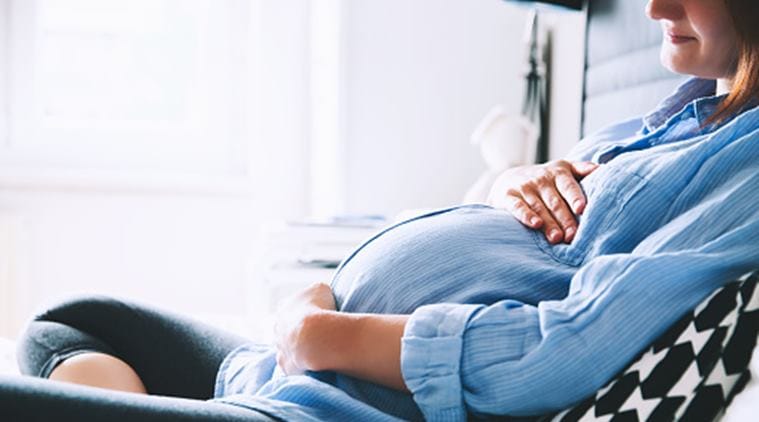Pregnant women can have preexisting liver diseases such as cirrhosis and portal hypertension or can get acute hepatitis, prior to pregnancy. They can also get liver diseases unique to pregnancy.

By Dr RV Thenmozhi
Pregnancies are not the easiest of times for women. While it is a time of joyous anticipation, the journey up to delivery for many pregnant women is riddled with several health factors that need expert examination and treatment, so as to ensure that both mother and child are fine. Liver disease in pregnant women is fairly common; reportedly between three to 10 per cent of women suffer from liver diseases during their pregnancy.
Liver diseases in pregnancy fall into two categories:
Pregnant women can have preexisting liver diseases such as cirrhosis and portal hypertension or can get acute hepatitis, prior to pregnancy. Pregnant women can get liver diseases unique to pregnancy, such as intra-hepatic cholestasis of pregnancy (ICP), hyperemesis gravidarum (HELLP) syndrome and acute fatty liver of pregnancy (AFLP). Intrahepatic Cholestasis of Pregnancy (IHCP / ICP)
Among the most common liver disorders that occur in pregnant women is Intrahepatic Cholestasis of Pregnancy (IHCP/ ICP), also known as obstetric cholestasis, which occurs inside the liver. At least 15 in 1000 women of Indian or Asian origin are known to suffer from ICP, which is found to occur usually during the third trimester when estrogen levels are very high. ICP occurs due to the increased levels of hormones during the third trimester and seems to go away 48 hours post-delivery. During ICP, the bile produced by the liver slows down or stops due to the increase in pregnancy hormones. Bile is essential to break down the fats that we consume, aiding digestion. Due to the slowing down of the liver processing the bile acids, there’s a buildup of bile which can then flow into the bloodstream and prove harmful to the baby.
Symptoms of liver disease
Severe itching of the hands and feet, nausea, loss of appetite, feeling of extreme exhaustion, dark colour of the urine and even depression are some of the common and not so common symptoms of ICP. ICP or any other liver disease in pregnant women can affect the baby in the womb and the increased levels of bile can cause stress to the foetus. Sometimes, liver disorders, depending on the severity, can result in preterm birth or stillbirth.
Diagnosis and treatment
A thorough physical examination and laboratory tests that are equipped to check for high levels of bilirubin, elevated transaminases and levels of serum bile acid – if the Total Bile Acid (TBA) is found to be 10 micromol/L and above – are factors that help diagnose ICP in patients.
As per the American College of Gastroenterology (ACG) guidelines, treatment for ICP includes:
Early delivery at 37 weeks, due to foetal complications that may arise during pregnancy. Administering ursodeoxycholic acid (UDCA), also known as ‘urso’ at 10-15 mg/kg for symptomatic improvement. Skin creams to relieve itching, cold baths and ice water to decrease body temperature, Vitamin K supplements before and after the baby is born to prevent intracranial haemorrhaging and regular perhaps bi-weekly non-stress tests to monitor the baby’s heart and contractions are also some of the treatments that are recommended by doctors. While ICP is a common liver disorder, other liver disorders encountered during gestation or post-partum period include Acute Fatty Liver of Pregnancy (AFLP), Hemolysis and Elevated Liver Enzymes and Low Platelets (HELLP) syndrome and hyperemesis gravidarum.
It is difficult to determine if ICP will occur in future pregnancies, though some believe the chances of recurrence is very high. In any case, regimented visits to your gynecologist and frequent check-ups both pre and post-delivery will help ensure that pregnancies are safe and healthy for both the mother and baby.
Also Read| Look out for these warning signs for pregnancy complications
(The writer is Consultant Obstetrician and Gynecologist, Fortis Malar Hospital and Medall Diagnostics, Chennai.)
Source: Read Full Article
